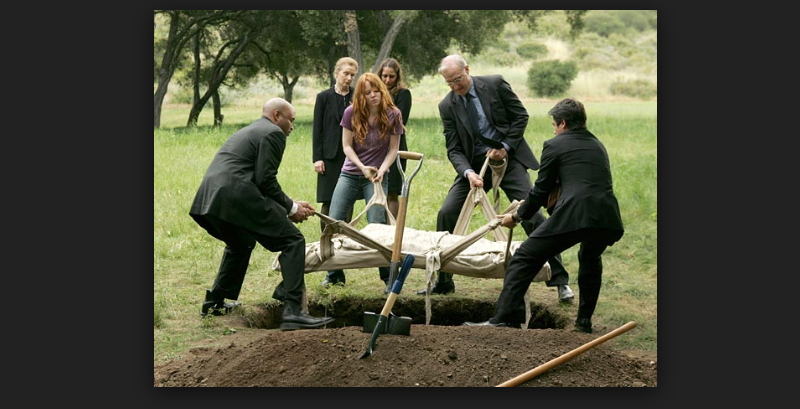Death of Foreigners in Turkey
Oday Hardan
Khas/Master’s-degree student
The death of a family member, relative or a friend can be a painful experience. When the death happens overseas, family and friends in the homeland can feel additional distressed as they are unfamiliar with foreign procedures and probably are unable to communicate in the language of the country where the death took place.
You may be uncertain about what to do next after knowing of such a news or who to contact for advice because dying in a foreign country puts stress on the traveler’s family and you should be aware that some Turkish procedures differ significantly to those in your country.
What about that procedures time how many days does it take? which facilities in Turkey to deal with? what about non-Muslim people funerals? what if the deceased had a will contain Cremation which is not available in Turkey? What if the family of the dead haven’t cover the financial issues for repatriation or local Burial? because the funeral and burial costs can be very expensive especially if the dead have no medical insurance to cover this situation.
If a deceased has not made his/her wishes for a funeral or burial clear to their family and/or friends, it can be hard for those left behind to know what to do. If the deceased’s family doesn’t require the body or come forward with arrangements, the deceased’s body becomes the property of the local government in ‘some countries’ who may do a number of things with the dead body, including donating it to science or burying it in a shared grave with other bodies with no formal ceremony.
Standard Procedures
In Turkey, it is not normally necessary for the dead to be identified by the next of relatives. Identification can be done by means of documentation such as a passport or fingerprints or by driving license and in complex situation DNA test can be done. in case it was a normal death all procedures be the responsibility of the municipality. Traffic accidents, Killings, Or any suspicious incident the consulate will be responsible for the proceedings.
Repatriation of a body from Turkey
Following the death of a foreign in Turkey, their next of kin, or the appointed representative, must decide whether to repatriate the body or perform a local burial. If the dead was covered by travel insurance, it is important for next of kin to contact the insurance company. If there is no insurance cover, the cost of repatriation or burial will be paid by the family.
a relative or a family member will be able to communicate directly with the local Consulate dealing with the event, telling them of how they want to proceed with the burial, where they wish this to occur and details of who is taking responsibility for the costs involved.
It is important to remember that if the dead was traveling with a tour operator, they can be a worthy source of help and advice.
But the preferred thing to do is to contact with funeral services companies if the dead in Non-Muslim or with insurance company if the dead had insurance. things to take in consideration is that the process of transforming the body to the homeland take 3 to 4 days after the dead paperwork received by the municipality. and because of Turkey has an increased number of visitors, it is important to know how these processes going on.as it shown in this chart how significantly that Turkey accommodate a huge number of visitors across the recent years.
Local Burial
There are some cemeteries for foreigners in Turkey for example in Istanbul it is located in kilos and the services provided by the municipalities around the country are all for free.
For Non-Muslim cemeteries or sections in Muslim cemeteries in most of the metropolitan cities. but in case the deceased’s family want to back the body back to the homeland with special ceremonies it may cost them a lot for example a casket is not always included within the service of the funeral “directors” if the dead was Non-Muslim, so when making arrangements make sure that you specify that this is also required.
A funeral service for a foreigner (including the services of the funeral company and the provision of the grave) can cost from TRY2,000-10,000 (US$550- US$3,000; €500-€2,500; £400-£2,000). and of course, this is for the special ceremonies because all the services provided by Turkish municipals are for free.

Cremation
Cremation is not legal in Turkey and there is no cremation facility service available. also bringing ashes of loved one to Turkey is restricted as well. This is what Mr. Selami Ünal from Istanbul municipality confirmed, and in this case the only one who can help is the consulate have the right to transform the body to another place to do cremation.
Donation of Bodies to Medical Science
In some areas of Turkey, there is the chance of donating your body to medical science after your death. There may be some restrictions to the donation of a body and certain medical conditions may lead to the offer being refused, it’s better if you want your body to be donated take into account to write a will after having valuable information about the rules in the country.
Death in the hospital
If the deceased pass away in hospital, then it will be the hospital doctor who certifies death and determines whether there are any circumstances that justify the involvement of the police and prosecutor. They will then issue a hospital death certificate and report the death to the Municipal Funeral Department. From that point onwards, the procedure is the same as if the person had died at home.
Nasir is an Iraqi father that his infant pass away in the hospital he said that “my little baby boy Husain was sick, and I took him to the hospital for treatment but it was too late the baby couldn’t hold on, later on with the help of some Turkish friends I sighed a paper to take my son to the mortuary as soon as possible which is located in Topkapı, And this is an obligatory thing to do”
Nasir confirmed that after the death of his son everything became a governmental process he has nothing to do except attending these processes. Nasir added that “the day after leaving the body in the mortuary was for washing the body in another place also this is being a governmental activity, but the employers can’t do anything only if I was there”
Also no one can take a role in these procedures except the employee of the municipal because Nasir tried to bring a religious man for some ritual ceremony, but they told him it’s not allowed because they already have such man to do the job.
Nasir said that “after washing they took the body to the cemetery and buried him, after one week I went to land registry department (Tabu) to register the grave land space in his name and this is also for free beside all the former procedures”.
Death elsewhere
Sometimes, someone will die somewhere: for instance, at the scene of a car accident or in a restaurant. In these cases, the police will inevitably will be called and the body will be taken to a hospital. From there on, the procedure is the same as if the death had taken place in a hospital.
References
http://www.kultur.gov.tr/?_dil=2
http://guides.global/guides/turkey/TUR-death.php
http://www.stevenmearsgroup.co.uk/repatriation/repatriation-to-turkey-2017.htm#coffins
https://smartexpat.com/turkey/how-to-guides/family/funeral-services
http://dergipark.gov.tr/download/article-file/410832
https://www.ibb.istanbul/SitePage/Index/211
FUNERAL TRANSACTIONS OF FOREIGNERS WHO DIE IN TURKEY
Yrd. Doç. Dr./Asst. Prof. F. Elif Çelik∗ Public and Private International Law Bulletin, Volume: 37, Issue: 2, 257–293.
